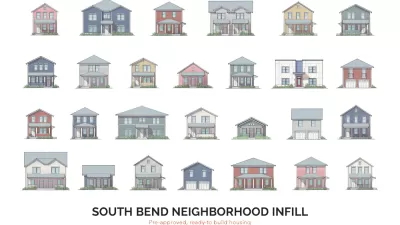Pushback against hedge funds buying and renting out single-family houses grows as elected officials in a handful of state legislatures seek to curb the trend amid the housing affordability crisis.

Following reports early in the year that investors snapped up a record number of homes to rent out in the fourth quarter of 2023, Democrats in the U.S. Senate and House introduced legislation in January that would ban hedge funds from the single-family housing market and require them to sell off all single-family homes they own over a decade. Momentum is now growing at the state level, according to a Wall Street Journal article by Will Parker.
Lawmakers in Ohio, Nebraska, California, New York, Minnesota, and North Carolina have proposed laws aimed at stopping Wall Street investors’ “home-buying spree,” which bill sponsors say are driving up home prices, pushing individual home buyers out of the market, and contributing to low inventory of affordable properties.
Some bills focus on limiting the number of rental-home ownership a company can own, forcing them to divest of any properties over that number — 100 under the North Carolina bill, 50 under the U.S. House and Senate bills and 20 under a Minnesota bill. Other states’ bills, including Ohio’s, would tax investor-landlords on what they consider to be excess properties to such an extent that they would be “compelled to sell,” reports Parker.
While most calls are coming from liberals, Parker writes that an increasing number of conservatives are expressing a need to curb the trend. One Republican Ohio senator described his state’s bill as “antitrust in spirit,” according to the WSJ. And though voters appear to be in favor them, the bills are not gaining traction in legislatures. Critics of such measures argue the culprit is lack of supply and high interest rates, not large single-family rental companies.
FULL STORY: Wall Street Has Spent Billions Buying Homes. A Crackdown Is Looming.

Study: Maui’s Plan to Convert Vacation Rentals to Long-Term Housing Could Cause Nearly $1 Billion Economic Loss
The plan would reduce visitor accommodation by 25,% resulting in 1,900 jobs lost.

Alabama: Trump Terminates Settlements for Black Communities Harmed By Raw Sewage
Trump deemed the landmark civil rights agreement “illegal DEI and environmental justice policy.”

North Texas Transit Leaders Tout Benefits of TOD for Growing Region
At a summit focused on transit-oriented development, policymakers discussed how North Texas’ expanded light rail system can serve as a tool for economic growth.

Paris Bike Boom Leads to Steep Drop in Air Pollution
The French city’s air quality has improved dramatically in the past 20 years, coinciding with a growth in cycling.

Why Housing Costs More to Build in California Than in Texas
Hard costs like labor and materials combined with ‘soft’ costs such as permitting make building in the San Francisco Bay Area almost three times as costly as in Texas cities.

San Diego County Sees a Rise in Urban Coyotes
San Diego County experiences a rise in urban coyotes, as sightings become prevalent throughout its urban neighbourhoods and surrounding areas.
Urban Design for Planners 1: Software Tools
This six-course series explores essential urban design concepts using open source software and equips planners with the tools they need to participate fully in the urban design process.
Planning for Universal Design
Learn the tools for implementing Universal Design in planning regulations.
Smith Gee Studio
Alamo Area Metropolitan Planning Organization
City of Santa Clarita
Institute for Housing and Urban Development Studies (IHS)
City of Grandview
Harvard GSD Executive Education
Toledo-Lucas County Plan Commissions
Salt Lake City
NYU Wagner Graduate School of Public Service





























